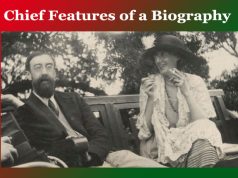Rabindranath Tagore’s Contributions to Indian English Literature
Rabindranath Tagore’s Contributions to Indian English Literature
Introduction:
Rabindranath Tagore, a polymath and visionary from India, stands as a towering figure in the realms of literature, art, and philosophy. His influence extends not only across Indian literature but also leaves an indelible mark on the global literary landscape. Tagore’s profound contributions to Indian English literature, in particular, have enriched the literary tradition and transcended cultural boundaries.
Pioneering Indian English Poetry:
“Gitanjali” – The Song Offerings:
Tagore’s most celebrated work, “Gitanjali” (Song Offerings), is a collection of poems that earned him the Nobel Prize in Literature in 1913. Translated from Bengali to English by the poet himself, these poems express a profound spiritual and philosophical exploration. The verses are characterized by a lyrical beauty that captures the essence of human existence, nature, and the divine. “Gitanjali” not only introduced Tagore to a global audience but also showcased the richness of Indian thought in English literature.
Integration of Indian Themes:
Tagore seamlessly blended Indian themes, imagery, and cultural nuances into his English poetry. The poems reflect his deep engagement with the Indian spiritual tradition, including elements of Hindu mysticism, nature worship, and a universalistic approach that transcends religious boundaries. This fusion of Indian ethos with the English language marked a groundbreaking achievement in the annals of Indian English literature.
Novels and Prose:
“The Home and the World”:
In addition to poetry, Tagore made significant contributions to Indian English literature through novels and prose. “The Home and the World” is a novel that explores complex themes of nationalism, personal freedom, and societal expectations. Written against the backdrop of the Swadeshi Movement, Tagore’s novel provides a nuanced portrayal of characters grappling with the tension between tradition and modernity.
Essays and Reflections:
Tagore’s essays and reflective writings in English, such as “Nationalism” and “Sadhana,” showcase his intellectual depth and engagement with contemporary issues. These works not only contribute to the literary discourse but also offer insights into Tagore’s philosophy on education, art, and the role of the individual in society.
Educational Reforms and Literary Institutions:
Visva-Bharati University:
Tagore’s contributions to literature extended beyond his creative works. He founded Visva-Bharati University in Santiniketan, a center for learning that aimed to harmonize the best of Eastern and Western educational philosophies. This institution became a nurturing ground for artists, writers, and intellectuals, fostering a cultural renaissance that left an enduring impact on Indian English literature.
Literary and Cultural Renaissance:
Tagore’s literary and cultural initiatives, including the establishment of literary magazines like “Sabuj Patra,” played a crucial role in the Bengal Renaissance. By providing a platform for emerging writers and artists, Tagore contributed to the rejuvenation of the literary landscape in Bengal, influencing the trajectory of Indian English literature.
Conclusion:
Tagore’s contributions to Indian English literature are multifaceted and profound, encompassing poetry, novels, essays, and educational reforms. His ability to seamlessly blend Indian themes with the English language, coupled with a universalistic outlook, has left an enduring legacy. Tagore’s impact extends beyond literary circles; it permeates the cultural and intellectual fabric of India and resonates globally, making him a seminal figure in the history of Indian English literature. His work continues to inspire generations, fostering a deeper understanding of the rich tapestry of Indian thought and creativity. 0 0 0.
Analytical Studies of Select Poems of Rabindranath Tagore
Rabindranath Tagore’s Poem ‘Salutation’-An Analytical Study
Rabindranath Tagore’s Poem ‘Sit Smiling’-An Analytical Study
Rabindranath Tagore’s Poem ‘Ocean of Forms’-An Analytical Study
Rabindranath Tagore’s Poem ‘Still Heart’-An Analytical Study
Rabindranath Tagore’s Poem ‘Parting Words’-An Analytical Study
Rabindranath Tagore’s Poem ‘Threshold’-An Analytical Study
Rabindranath Tagore’s Poem ‘Farewell’-An Analytical Study
Rabindranath Tagore’s Poem ‘Last Curtain’-An Analytical Study
Rabindranath Tagore’s Poem ‘Death’-An Analytical Study
Rabindranath Tagore’s Poem ‘Untimely Leave’-An Analytical Study
Rabindranath Tagore’s Poem ‘Brink of Eternity’-An Analytical Study
Rabindranath Tagore’s Poem ‘Chain of Pearls’-An Analytical Study
Rabindranath Tagore’s Poem ‘Endless Time’-An Analytical Study
Rabindranath Tagore’s Poem ‘Lost Time’-An Analytical Study
Rabindranath Tagore’s Poem ‘Roaming Cloud’-An Analytical Study
Rabindranath Tagore’s Poem ‘Let Me Not Forget’-An Analytical Study
Rabindranath Tagore’s Poem ‘Lost Star’-An Analytical Study
Rabindranath Tagore’s Poem ‘Face to Face’-An Analytical Study
Rabindranath Tagore’s Poem ‘Senses’-An Analytical Study
Rabindranath Tagore’s Poem ‘Innermost One’-An Analytical Study
Rabindranath Tagore’s Poem ‘Maya’-An Analytical Study
Rabindranath Tagore’s Poem ‘Stream of Life’-An Analytical Study
Rabindranath Tagore’s Poem ‘She’-An Analytical Study
Rabindranath Tagore’s Poem ‘Old and New’-An Analytical Study
Rabindranath Tagore’s Poem ‘Colored Toys’-An Analytical Study
Rabindranath Tagore’s Poem ‘Seashore’-An Analytical Study
Rabindranath Tagore’s Poem ‘Passing Breeze’-An Analytical Study
Rabindranath Tagore’s Poem ‘Light’-An Analytical Study
Rabindranath Tagore’s Poem ‘The Journey’-An Analytical Study
Rabindranath Tagore’s Poem ‘Distant Time’-An Analytical Study
Rabindranath Tagore’s Poem ‘Silent Steps’-An Analytical Study
Rabindranath Tagore’s Poem ‘Where Shadow Chases Light’-An Analytical Study
Rabindranath Tagore’s Poem ‘Signet of Eternity’-An Analytical Study
Rabindranath Tagore’s Poem ‘Sail Away’-An Analytical Study
Rabindranath Tagore’s Poem ‘Beggarly Heart’-An Analytical Study
Rabindranath Tagore’s Poem ‘Only Thee’-An Analytical Study
Rabindranath Tagore’s Poem ‘Closed Path’-An Analytical Study
Rabindranath Tagore’s Poem ‘Give Me Strength’-An Analytical Study
Rabindranath Tagore’s Poem ‘Little of Me’-An Analytical Study
Rabindranath Tagore’s Poem ‘Free Love’-An Analytical Study
Rabindranath Tagore’s Poem ‘Prisoner’-An Analytical Study
Rabindranath Tagore’s Poem ‘Who Is This’-An Analytical Study
Rabindranath Tagore’s Poem ‘Dungeon’-An Analytical Study
Rabindranath Tagore’s Poem ‘Lamp of Love’-An Analytical Study
Rabindranath Tagore’s Poem ‘Sleep’-An Analytical Study
Rabindranath Tagore’s Poem ‘When Day Is Done’-An Analytical Study
Rabindranath Tagore’s Poem ‘Friend’-An Analytical Study
Rabindranath Tagore’s Poem ‘Lotus’-An Analytical Study
Rabindranath Tagore’s Poem ‘Flower’-An Analytical Study
Rabindranath Tagore’s Poem ‘The Boat’-An Analytical Study
Rabindranath Tagore’s Poem ‘Patience’-An Analytical Study
Rabindranath Tagore’s Poem ‘Strong Mercy’-An Analytical Study
Rabindranath Tagore’s Poem ‘Song Unsung’-An Analytical Study
Rabindranath Tagore’s Poem ‘Journey Home’-An Analytical Study
Rabindranath Tagore’s Poem ‘Purity’-An Analytical Study
Rabindranath Tagore’s Poem ‘Little Flute’-An Analytical Study
Rabindranath Tagore’s Poem ‘Where The Mind is Without Fear’-An Analytical Study
Rabindranath Tagore’s Poem ‘Day After Day He Comes’-An Analytical Study
Rabindranath Tagore’s Poem ‘Let Your Work Be’-An Analytical Study
Rabindranath Tagore’s Poem ‘I Asked Nothing’-An Analytical Study
Rabindranath Tagore’s Poem ‘Why Do You Whisper So Faintly’-An Analytical Study
Rabindranath Tagore’s Poem ‘When She Passed by Me’-An Analytical Study
Rabindranath Tagore’s Poem ‘I Was Walking by the Road’-An Analytical Study
Rabindranath Tagore’s Poem ‘Walk Alone’-An Analytical Study
Chief Characteristics of Rabindranath Tagore’s Poetry. 0 0 0







